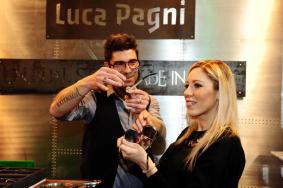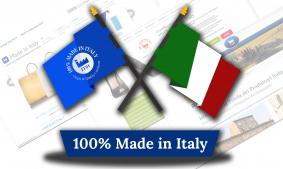Living without euro is no longer an illusion. The new barter and virtual coins begin to supplant it.
Living without euro, the dream - or the illusion - of so many Europeans disappointed by the single currency. Live without that currency stepmother, imposed from above, it became for many synonymous with austerity, sacrifice, poverty. To escape the tyranny of Frankfurt, the chancelleries continental powers Asian commercial and financial speculation.
Forget your wallet and the tyranny of the banks and put a day after another commuting, not paying. Remove the money function of accumulator of wealth to leave the original pure medium of exchange.
Farewell to the currency and return to barter. The crisis is driving the symbol of the economic reality that primitive over time became nell'utopico yearning of anti-globalization, eccentric intellectuals, ideologues back to basics, conscious kilometer zero. The virtual marketplace of the Internet has multiplied the opportunities, abolishing the barriers of places and encouraging the establishment of networks of more people. But the main thrust towards the return to the old exchange is coming from the euro, so as to encourage poorly tolerated itself attempts to circumvent the use.
In Argentina at the time of the first currency crisis, as in Greece in recent years, the return to barter has allowed the survival of entire communities. Exchange markets in old-fashioned neighborhood, good vs. good, food and objects used. More and more areas where the goods change hands without euro: spending, used clothes, chores at home, old or unnecessary items, games for children. But bartering conquer new spaces in daily life in ever more advanced.
It swaps the work, or the house thanks to sites that allow the exchange of apartments, and even holidays in bed and breakfast that adhere to circuits like barattobb.it hospitality will not pay in Euros, but with their own labor. Carry out maintenance, the creation of the website, the texts of an advertising brochure. From 16 to 22 November this year takes place the seventh edition of the Week of barter (www.settimanadelbaratto.it) where, to stay free in the affiliated structures, vacationers offer photo books, homemade pasta, medical, computer repairs and b & b try everything from tea sets ceramic 50s up to books, dvds, apecar and bath towels.
Time banking is a forerunner of the exchange no-EUR: to provide a certain service (usually child care, tuition assistance) members provide a few hours which is accounted for by the bank and compensated by other benefits. It is not just a style of life in solidarity, anti-waste or even fashionable for lovers and vintage. As outlined in the site slogan zerorelativo.it platform with nearly 40 thousand subscribers, "everything is reused, everything is exchanged and nothing is thrown."
In barter 2.0 there is a new model of consumption, a response to the needs that is independent from money, a search of social relations in the age of individualism. But there is also an idea of alternative economy, a challenge to the liquidity squeeze and trim economic and financial imposed a currency like the euro. This is the real news that is making a qualitative leap in the form of pre-capitalist trade. Because today barter is also non-euro business.
The Eurolocal
Companies, for example, can subscribe to commercial platforms (iBarter.com or cambiomerci.com), where raw materials and finished products circulating in exchange for other products, services or credits without currency circulation: the advantage is to acquire new customers, consolidate relations, reduce inventory, speed up collections, snipping exposures with banks and therefore pay less interest. In the years of crisis are widespread complementary currencies. The parent is the Swiss Wir (ie "we"), who was born in 1934 after the crash of '29 and with its 45 thousand current users still enjoys excellent health. It works like a bank that compensates receivables and payables.
In Sardinia in 2010 circulates sardex, an electronic mortgage credit among nearly 3,000 member companies including companies such as Tiscali and the publisher of the newspaper Unione Sarda: in 2014 originated transactions equivalent to 30 million euro. It is an experiment in self-commercial organization that is making school. The Lombardy Region has decided to test a similar electronic money under the new law for competitiveness. Sicily was born sicanex, in the Marche Marchex, in the Piedmont piemex.
IDEAS FOR EXPORT
Littera Joseph, one of five young people who created the start-up (now millionaire in Euros) of sardex, also went into the derelict Greece to export the know-how. But before technical and financial advice, as told by the Financial Times, he has dispensed life lessons: "Focus on the impact that may have, work on it every day and try to build communities which did not exist before. In Sardinia, the social fabric was torn. And we have begun to rebuild. "
In Romagna one hundred companies wishing to abandon the euro joined the project quinc (short for quincunx, bronze coin of Roman Ariminum), supported by the region and by chambers of commerce: a circuit of transactions where the currency exchange They are reusable coupons that you can see or trade. In many regions of the Italian opera SCEC Archipelago, which stands for National Coordination solidarity walking, but it sounds like the French word for checks, an international synonym check.
In the Greek city of Volos is in use tem, parallel currency hated euro. In Belgium, the capital of Europe to 28, the network acts Res with over 5,000 merchants and 100 thousand consumers in possession of a "payment card" Res. The most popular alternative is the bitcoin currency, electronic money be spent in virtual trade on -line in every corner of the world and not subject to review by any international authority because transactions are not traceable. Why it is considered as a tool that can facilitate illegal financial activities.
Barter, complementary currency, alternative currency systems are to cope with the disengagement of the banks, the credit crunch and also the restrictive monetary policies. Of course they have a number of drawbacks: the possibility of fraud, financial assets unregulated and out of control, creating the amount of non-convertible debt or credit, risk of tax evasion if the exchange of goods takes place without payment of VAT or income generation.
In the face of danger, in Italy since last year bartering took even an institutional established by Decree Law 133 of 12 September 2014, the famous "Unlock Italian" government Renzi. Article 24 establishes the so-called "barter administrative" in favor of the municipalities. Community work in exchange for discounts on local taxes, on fines, on taxes or unpaid rents of public housing. It is a form of active citizenship that promotes participation in the management of public affairs.
NEW BARATTI
But it also makes more prosaic: it is also a way to settle accounts with the state having little money, and the bureaucracy can recover otherwise uncollectible receivables. Keep order in a green area, watch the kids on the school bus, whitewash the walls of schools or public offices, clearing trails, vigilant in public parks, clearing snow: there are numerous forms of barter administration applied by municipalities, each in its own way . Someone applying percentage discounts on garbage fee, others limit the benefits to the poor; there are those who will appeal directly to citizens and those who want to volunteer organizations as a conduit. Milan, the first major Italian cities to adopt this tool, chose to favor those with arrears payable serving Ici, IMU, garbage fee, fines, school fees, rents in exchange for hours of unpaid work. One way to restore dignity to those who have money but want to feel useful, and want to live a life without euro. Why can not stand him. Or why does not.
[Source: larepubblica.it]







